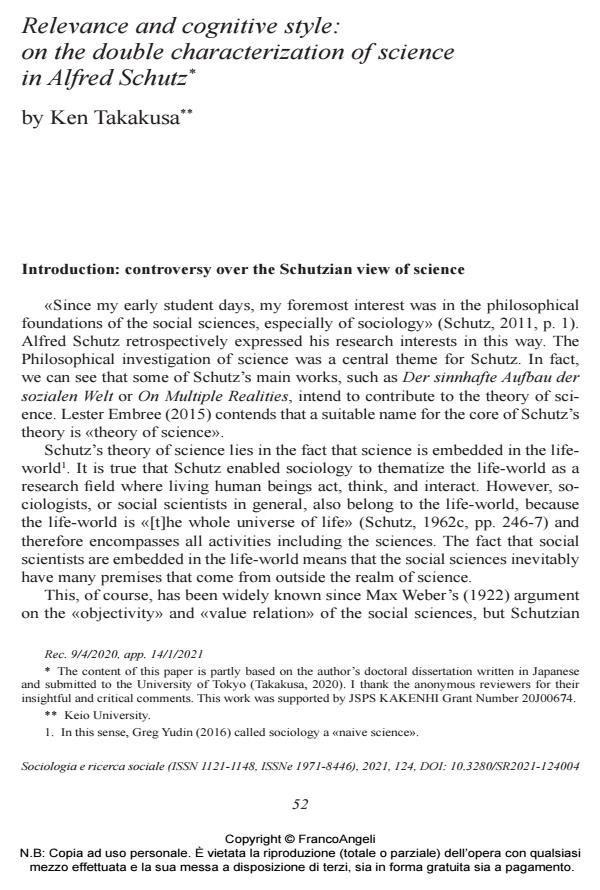Relevance and cognitive style: on the double characterization of science in Alfred Schutz
Titolo Rivista SOCIOLOGIA E RICERCA SOCIALE
Autori/Curatori Ken Takakusa
Anno di pubblicazione 2021 Fascicolo 2021/124
Lingua Inglese Numero pagine 17 P. 52-68 Dimensione file 225 KB
DOI 10.3280/SR2021-124004
Il DOI è il codice a barre della proprietà intellettuale: per saperne di più
clicca qui
Qui sotto puoi vedere in anteprima la prima pagina di questo articolo.
Se questo articolo ti interessa, lo puoi acquistare (e scaricare in formato pdf) seguendo le facili indicazioni per acquistare il download credit. Acquista Download Credits per scaricare questo Articolo in formato PDF

FrancoAngeli è membro della Publishers International Linking Association, Inc (PILA), associazione indipendente e non profit per facilitare (attraverso i servizi tecnologici implementati da CrossRef.org) l’accesso degli studiosi ai contenuti digitali nelle pubblicazioni professionali e scientifiche.
This paper reveals Schutz’s double characterization of science. First, he characterizes science as a modification of interest and relevance. This is compatible with his basic view of science as embedded in the life-world. Second, in contrast, he often excludes working and communication from his argument on science and characterizes science as a pure cogitation. By critically examining the distinction between scientific attitude and scientific activity as well as the concept of cognitive style, this paper concludes that the second characterization proposed by Schutz is untenable. In addition, this paper indicates that the second characterization experienced a significant change from On Multiple Realities to Symbol, Reality, and Society. Although Schutz has been challenged by contemporary science studies because of his ineffectiveness to deal with scientific activity, the careful and critical examination of his argument allows a positive interpretation of his theory as offering basic concepts for the investigation of scientific activity.
Ken Takakusa, Relevance and cognitive style: on the double characterization of science in Alfred Schutz in "SOCIOLOGIA E RICERCA SOCIALE " 124/2021, pp 52-68, DOI: 10.3280/SR2021-124004